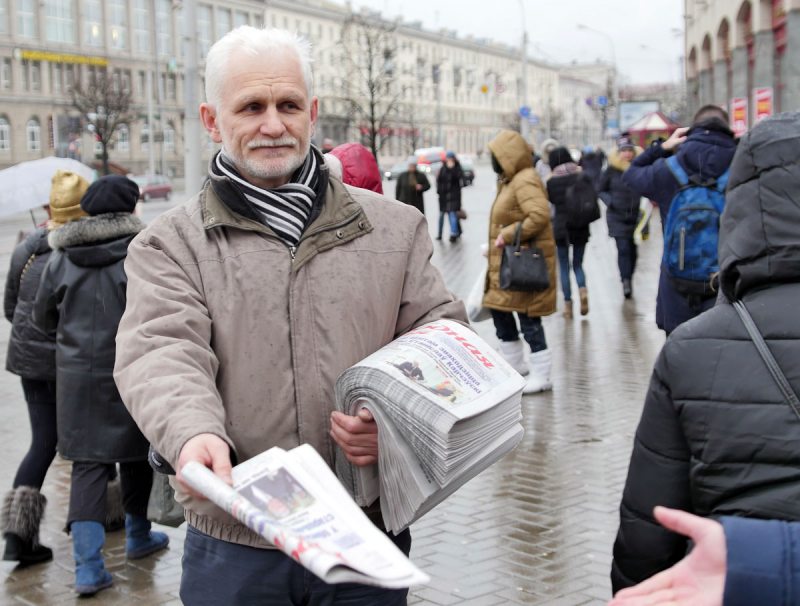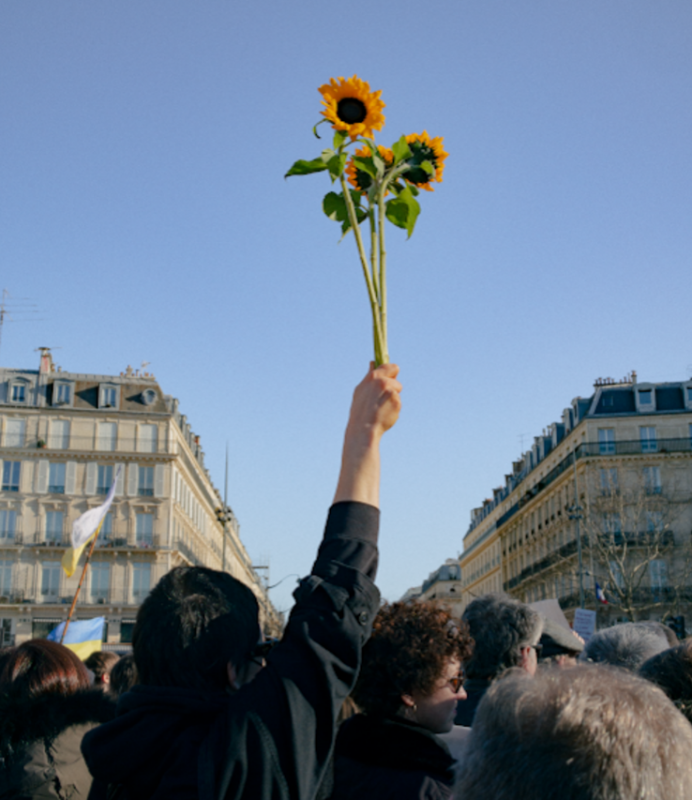Viasna's photos to be presented at Peace Prize Exhibition in Oslo
The courageous work that individuals and organizations do for human rights, freedom and democracy is at the centre of this year's Nobel Peace Prize Exhibition.
"Nobody plans to give up.” These words were spoken by the Chair of the Board of Memorial when the organization was forcibly closed down by the Russian authorities. The Russian human rights organization Memorial shares this year's Nobel Peace Prize with Ales Bialiatski from Belarus and the Center for Civil Liberties from Ukraine. On Sunday 11 December, representatives of all three will come to the Nobel Peace Center to open this year's exhibition.
"This exhibition aims at highlighting the courage and perseverance of the three laureates, and at the same time showing just how much people can achieve when we join together to fight against injustice,” says Nobel Peace Center Executive Director Kjersti Fløgstad.
Human rights defenders
This year's Nobel Peace Prize laureates work to defend human rights in their home countries. After Russia's invasion of Ukraine, their work has become even more difficult – and even more important. The Peace Prize Exhibition tells the story of the three laureates and their work through photos and material provided by their own organisations.
"The Nobel Peace Prize is always significant, but this year it has been very special to work on the exhibition. With Ales Bialiatski in prison and two organizations operating in countries at war, the war in Europe has come very close to us,” says Fløgstad. “We have had a close dialogue with the laureates’ organizations along the way and are grateful that they have shared so much exciting material with us, despite the fact that they work under very difficult conditions.”
Among other things, the public can see the Center for Civil Liberties' own photographs from Ukraine and a letter Ales Bialiatski sent from prison the last time he was in political captivity, from 2011 to 2014. In the exhibition, the audience is invited to send their own postcards to Bialiatski, who is one of 1400 political prisoners in Belarus.
People Power
To emphasize the importance of civil society for democracy, the exhibition also features the photo series “Ordinary People,” which was created in collaboration with Magnum Photos. These documentary photos from civil protests in Iran, the USA, Hong Kong, and Europe are signed by famous photographers such as Nanna Heitmann, Stuart Franklin and Jérôme Sessini. One wall is dedicated to the work of the Polish artist and photographer Rafal Milach. He has documented demonstrations and protests both in Poland and neighbouring countries in recent years and uses the camera to actively influence society.
“In order to bring about positive change in society, we are completely dependent on individuals getting involved, often at great personal risk. This year's Nobel Peace Prize laureates are striking examples of this,” says Fløgstad.



















